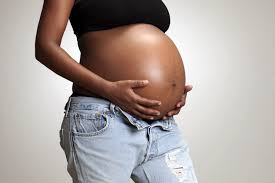Among women with a high desire to avoid becoming pregnant, those who drank heavily had a 50 per cent higher risk of becoming pregnant than those who drank moderately or not at all, according to a new study. In contrast, participants who used cannabis were no more likely to have an undesired pregnancy than participants who did not use cannabis.
Women who drink heavily are significantly more likely to experience unintended pregnancies—even when they strongly wish to avoid them, according to a new study. Cannabis users, however, were no more likely to have an undesired pregnancy than participants who did not use cannabis.
Among over 2,000 non-pregnant women aged 15–34, researchers focused on 936 participants who expressed a clear desire not to become pregnant. Within this group, 429 reported heavy alcohol use, and 362 reported cannabis use, including 157 who used cannabis daily or nearly every day.
Despite their strong intentions to avoid pregnancy, the women who drank heavily were 50 per cent more likely to conceive unintentionally than those who drank moderately or not at all. Over the course of a year, 71 of the 936 women became pregnant—more than half of those pregnancies occurred among heavy drinkers. In contrast, fewer than half occurred among cannabis users, and their risk was no higher than that of non-users.
Both heavy drinkers and frequent cannabis users reported a stronger-than-average desire to avoid pregnancy, making the alcohol-related spike in unintended pregnancies especially concerning. Researchers believe alcohol may impair decision-making or lead to behaviours that increase the likelihood of conception, even among women actively trying to prevent it.
The findings carry serious implications for public health. Foetal alcohol spectrum disorders (FASD), which result from alcohol exposure during pregnancy, can have lifelong effects on children. Because the risk of FASD increases with the amount and duration of drinking, early intervention is critical.
Clinicians are urged to support women who drink heavily in reducing alcohol use—especially if an unintended pregnancy is suspected. As researchers continue to investigate the underlying causes of this trend, the message is clear: alcohol may be quietly fuelling a surge in unwanted pregnancies, while cannabis appears to play no comparable role.









No Comment! Be the first one.